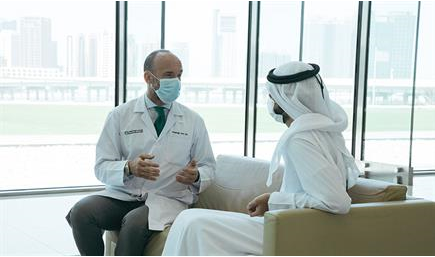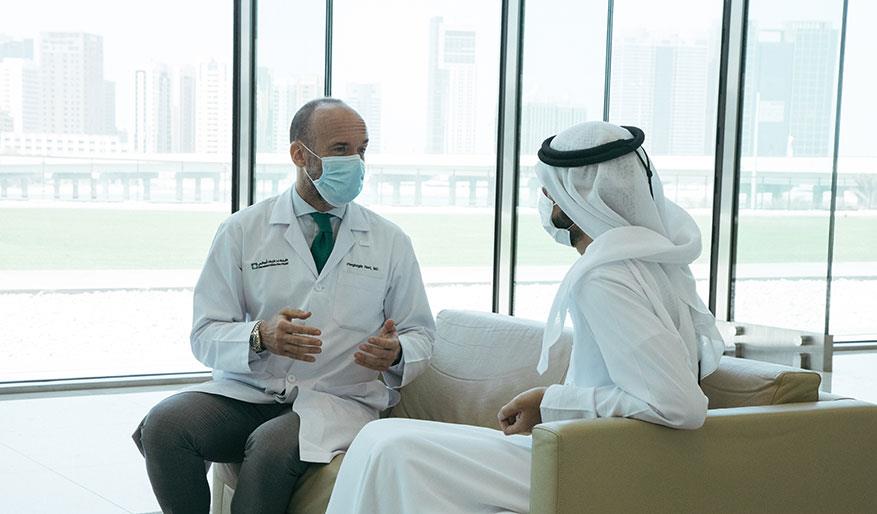Our Doctors
Meet all the doctors from Cleveland Clinic Abu Dhabi.
View Doctors
Staying hydrated is the first step to staying healthy

Ramadan is a time for Muslims around the world to focus on spiritual reflection, self-improvement and to devote time to worship. Throughout the Holy Month, those observing Ramadan abstain from food and drink during daylight hours.
A lot of emphasis is put on what to eat when fast is broken, but experts from Cleveland Clinic Abu Dhabi are reminding Muslims that staying hydrated is just as important to ensure a healthy Ramadan.
We are made up of around 60% water, an essential component for all functions that our bodies perform, and for our overall wellbeing. Throughout the day, we naturally lose a couple of liters of water as we sweat and urinate, so we need to constantly replenish our levels.
When we fast, our bodies are not replenished for long periods of time, which can lead to dehydration. The first signs of dehydration can include beginning to feel weak, tired, and dizzy, with an increased thirst. Dehydration can also lead to a number of common health complaints:
Developing a headache is one of the most common complaints during fasting. It can be caused by a number of things - changes in sleep patterns, low blood sugar, caffeine withdrawal, and most commonly, dehydration. But headaches can be avoided. Getting enough sleep is very important to help prevent them, and if you are a big coffee drinker, start reducing your intake in the weeks leading up to Ramadan to help your body prepare. Eating the right foods in the evening can help prevent such severe drops in blood sugar levels, and of course, increasing water intake is essential. If headaches persist, or become a migraine, always talk to your doctor
Backache is a very common complaint during Ramadan. Why? Well, when our bodies aren’t properly hydrated, the disks in our spine lose water and become smaller. This results in a lack of proper support for the spine and can cause pain, swelling and even a herniated disk.Any sort of severe back pain should be checked out by a doctor, but if you are fasting, staying properly hydrated can help.
Experiencing dryness in the eyes is another surprisingly common complaint during Ramadan. Our body naturally produces tears which nourish our eyes and help keep our vision clear by flushing away any dust or debris that happens to enter our eyes. Symptoms of dry eye can include irritation, a feeling of something being in the eye, and a blurring of your vision. As you can probably guess, the best thing to combat dry eyes is staying hydrated. If any irritation, redness, or pain in the eye persists, always have it looked at by an ophthalmologist.
This can be tricky during a fast, especially when the days are long and the weather is hot. But there are a few simple steps you can take to boost your hydration, and ensure you stay as healthy as possible.
It may be a challenge but keeping on top of your hydration can help to prevent common health complaints associated with fasting, allowing you to observe a complete and healthy Ramadan.

Prioritize your health during the Holy Month and take advantage of our streamlined Executive Health Screening assessment packages.
Our Ramadan Express and Ramadan Basic packages are compact yet comprehensive versions of our Executive Health Program.
Learn More